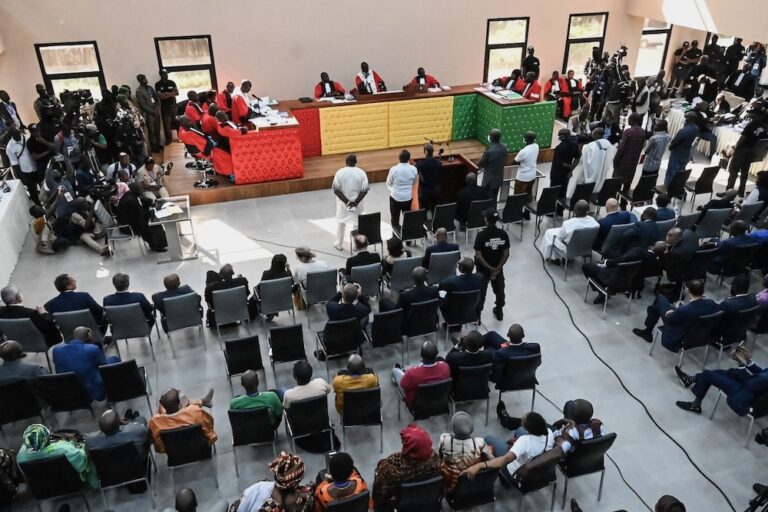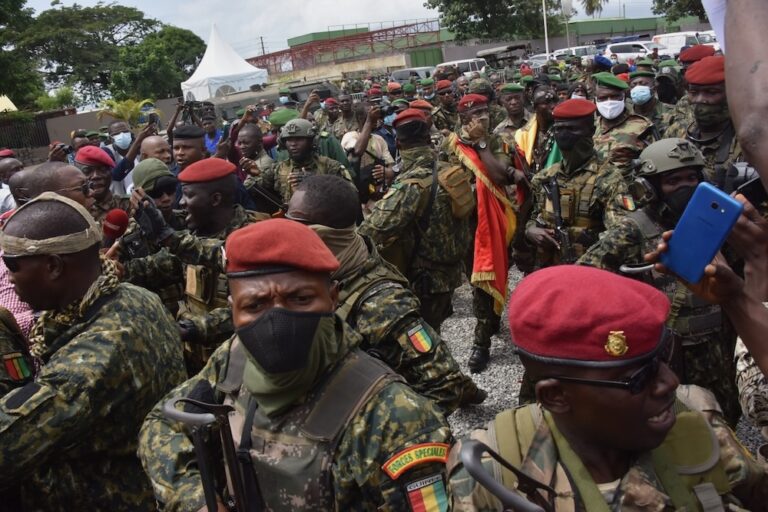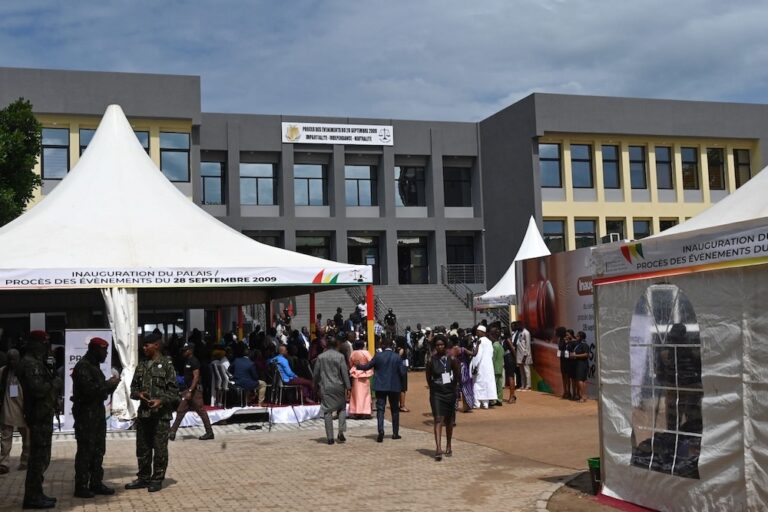The raid on "L'Indépendant-le Démocrate" followed the publication of an article in which the paper alleged that President Condé had doubled the soldiers' salaries.
(MFWA/IFEX) – On 30 May 2011, a group of heavily armed soldiers created a chaotic scene at the premises of the privately-owned “L’Indépendant-le Démocrate” newspaper, located in a prime area of Conakry, the capital of Guinea.
Media Foundation for West Africa’s (MFWA) correspondent reported that the newspaper’s publisher, Mamadou Dian Diallo, together with other journalists who were alerted by the soldiers’ action, managed to escape.
The correspondent said several other staff members who remained in the office were held hostage by the ten angry soldiers for several hours before being released upon the intervention of officials of the media regulator, the National Communications Council (CNC).
The soldiers’ action followed the publication of a 26 May article headlined: “Rise in salaries: Soldiers rub their hands” in which the newspaper alleged that President Alpha Condé had increased the salary of the soldiers by 100% following their agitations.
“We want to see the publisher as we have some questions to ask him and to settle some score with him,” one of the soldiers, who spoke on behalf of his colleagues, said. According to him, they were authorised by a certain Colonel Congo of the Presidential security outfit.
The soldiers left promising to “skin alive” publisher Mamadou Diallo.
In a separate development, N’Fanly Guilavogui, a reporter with Evasion, a privately-owned television station, was violently assaulted by three members of the Presidential Security Corps red berets at Conakry International Airport on 30 May. Guilavogui’s camera and dictaphone were destroyed.
MFWA’s correspondent reported that the incident occurred at the presidential lounge of the airport, where a group of journalists had gone to cover a media briefing by the president who had returned from a summit in France.
The correspondent quoted one of the soldiers as saying: “We are admitting only journalists from the state media here. For those of you from the private media, we have been ordered not to allow you in, you talk too much.”
Guilavogui, who is also from the private media, responded, “Captain, don’t make any distinction between journalists. We are all one national media family. Those of us from the private press are also Guineans.”
This response angered the captain who together with two other soldiers pounced on him and beat him up. It took the intervention of some ministers to free the journalist from the furious soldiers.


